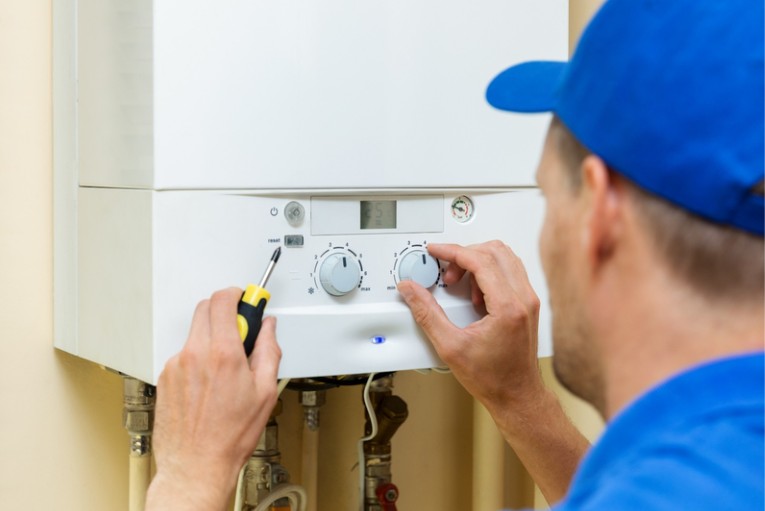Boiler Losing Pressure? Here’s What You Need to Know

A boiler is essential for keeping your home warm and providing hot water. But if your boiler keeps losing pressure, it can cause problems. Low pressure can lead to heating issues, cold radiators, and even boiler breakdowns.
If you are wondering why your boiler is losing pressure and how to fix it, this guide will help you understand everything you need to know, and also explore whether a Boiler Grant could help you replace an inefficient system.
What Causes a Boiler to Lose Pressure?
Several reasons can cause your boiler to lose pressure. Some issues are easy to fix, while others may require professional help. Let’s explore the most common causes:
1. Water Leaks in the System
Leaks in the heating system are a major cause of pressure loss. Even a small leak can lead to a drop in pressure over time. Check for damp patches around radiators, pipes, and under the boiler. If you find a leak, it’s best to call a professional to fix it.
2. Bleeding Radiators
When you bleed a radiator to remove trapped air, some water escapes. This can lower the pressure in your boiler. After bleeding your radiators, always check the pressure gauge on your boiler. If it has dropped below the recommended level, you may need to top up the pressure.
3. Faulty Pressure Relief Valve
The pressure relief valve releases excess pressure from the boiler. If it is faulty or damaged, it may let out too much water, causing the pressure to drop. If you notice water dripping from the overflow pipe outside your home, this could be the issue.
4. Expansion Vessel Problems
The expansion vessel in your boiler helps maintain pressure. If it is faulty, pressure can fluctuate or drop. A professional can check if the expansion vessel needs to be recharged or replaced.
5. Boiler Age and Wear
Over time, parts of your boiler can wear out. Older boilers are more likely to lose pressure due to small leaks or failing components. If your boiler is more than 10 years old and frequently loses pressure, it may be time to consider a replacement.
How to Fix a Boiler Losing Pressure
If your ideal boilers is losing pressure, there are a few steps you can take to fix it. Some solutions are simple and can be done yourself, while others may require professional help.
1. Check for Visible Leaks
Inspect your home for leaks around radiators, pipes, and the boiler itself. If you find a leak, you may need a plumber to fix it.
2. Repressurize the Boiler
If you don’t find any leaks, you can try repressurizing your boiler. Follow these steps:
- Locate the filling loop, usually a flexible silver hose under the boiler.
- Ensure both ends are securely attached.
- Open the valves slowly to allow water into the system.
- Keep an eye on the pressure gauge. Stop when it reaches the recommended level (usually between 1 and 1.5 bar).
- Close the valves and check if the pressure remains stable.
3. Bleed Your Radiators Properly
If you recently bled your radiators, check the pressure gauge. If the pressure is low, you may need to top it up using the filling loop.
4. Check the Pressure Relief Valve
If the relief valve is leaking, it may need to be replaced. A plumber can assess whether it needs repair or replacement.
5. Call a Professional
If you have tried these steps and your boiler still loses pressure, it’s best to call a heating engineer. They can check for hidden leaks, test the expansion vessel, and ensure your boiler is functioning correctly.
How to Prevent Boiler Pressure Loss
Preventative maintenance can help keep your boiler working properly and avoid pressure loss. Here are some tips:
- Check for leaks regularly: Small leaks can become bigger over time.
- Bleed radiators carefully: Only release enough air to fix the issue.
- Service your boiler annually: A professional can catch issues before they become serious.
- Monitor the pressure gauge: If you notice frequent drops, investigate early.
When to Replace Your Boiler
If your boiler frequently loses pressure and repairs are becoming costly, it may be time for a new one. Signs that you need a replacement include:
- Your boiler is over 10 years old.
- You have to repressurize it often.
- Repairs are becoming expensive.
- Your heating bills are rising due to inefficiency.
A new boiler may be a more cost-effective solution in the long run.
Final Thoughts
A boiler losing pressure is a common problem, but it can usually be fixed with simple steps. Checking for leaks, repressurizing the system, and bleeding radiators can help maintain the correct pressure. Regular servicing and maintenance can prevent future issues. If your boiler continues to lose pressure despite these steps, consult a professional. Keeping your boiler in good condition ensures a warm home and reliable hot water all year round.



